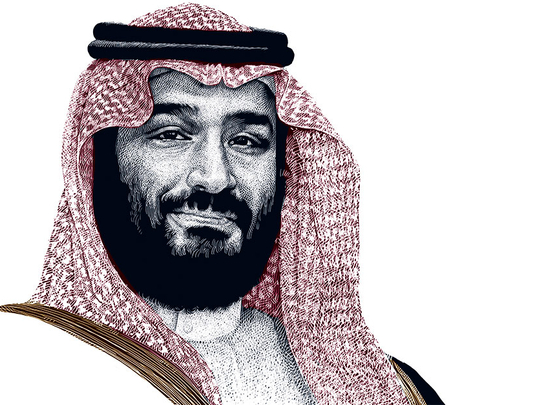
Dubai: Saudi Crown Prince Mohammad Bin Salman, in a candid interview with the New York Times, has defended an anti-corruption probe he has spearheaded across the country which has drawn much praise but also some criticisms.
While some say the campaign was merely a power grab—Mohammad flatly rejects this.
Instead, he said that a “majority of the royal family” is already behind him and have publicly pledged allegiance to him and his reforms.
“Our country has suffered a lot from corruption from the 1980s until today. The calculation of our experts is that roughly 10 per cent of all government spending was siphoned off by corruption each year, from the top levels to the bottom. Over the years the government launched more than one ‘war on corruption’ and they all failed. Why? Because they all started from the bottom up.”
So when his father, who has never been tainted by corruption charges during his nearly five decades as governor of Riyadh, ascended to the throne in 2015 (at a time of falling oil prices), he vowed to put a stop to it all, Mohammad said:
“My father saw that there is no way we can stay in the G-20 and grow with this level of corruption. In early 2015, one of his first orders to his team was to collect all the information about corruption - at the top. This team worked for two years until they collected the most accurate information, and then they came up with about 200 names.”
When all the data was ready, the public prosecutor, Saud Al Mojib, took action, Mohammad said, explaining that each suspected billionaire or prince was arrested and given two choices: “We show them all the files that we have and as soon as they see those about 95 per cent agree to a settlement,” which means signing over cash or shares of their business to the Saudi state treasury.
“About 1 per cent,” he added, “are able to prove they are clean and their case is dropped right there. About 4 per cent say they are not corrupt and with their lawyers want to go to court. Under Saudi law, the public prosecutor is independent. We cannot interfere with his job - the king can dismiss him, but he is driving the process ... We have experts making sure no businesses are bankrupted in the process” - to avoid causing unemployment.
On how much money the government is recovering, Mohammad estimates the figure to be “around $100 billion”.
There is no way, he added, to root out all corruption from top to the bottom, “So you have to send a signal, and the signal going forward now is, ‘You will not escape.’ And we are already seeing the impact,” like people writing on social media, “I called my middle man and he doesn’t answer.”
The anti-corruption drive is only the second-most unusual and important initiative launched by Mohammad. The first is to bring Saudi Islam back to its more open and modern orientation - whence it diverted in 1979. That is, back to what Mohammad described to a recent global investment conference here as a “moderate, balanced Islam that is open to the world and to all religions and all traditions and peoples.”
Mohammad insisted that the drive was to restore Islam to its origins—not reinterpret its tenets.
“Our biggest tools are the Prophet Mohammad’s (PBUH) practices and [daily life in] Saudi Arabia before 1979.”
During the Prophet’s time, he argued, there were musical theaters, there was mixing between men and women, there was respect for Christians and Jews in Arabia.
“The first commercial judge in Madinah was a woman!” So if the Prophet embraced all of this, Mohammad asked, “Does that mean the Prophet was not a Muslim?”
Then one of his ministers got out his cellphone and shared with me pictures and YouTube videos of Saudi Arabia in the 1950s - women without heads covered, wearing skirts and walking with men in public, as well as concerts and cinemas. It was still a traditional and modest place, but not one where fun had been outlawed, which is what happened after 1979.
If this virus of an anti-pluralistic, misogynistic Islam that came out of Saudi Arabia in 1979 can be reversed by Saudi Arabia, it would drive moderation across the Muslim world and surely be welcomed here where 65 per cent of the population is under 30. “My generation was held hostage by 1979. I know now that my kids will not be hostages,” one middle-age Saudi banker said.
New York Times News Service












